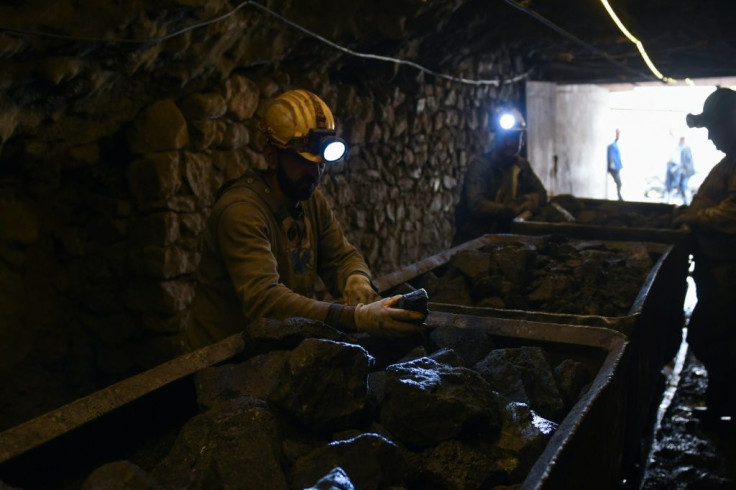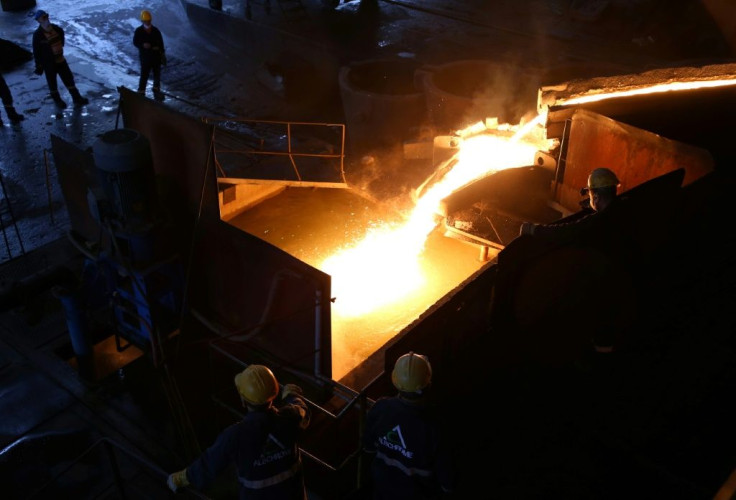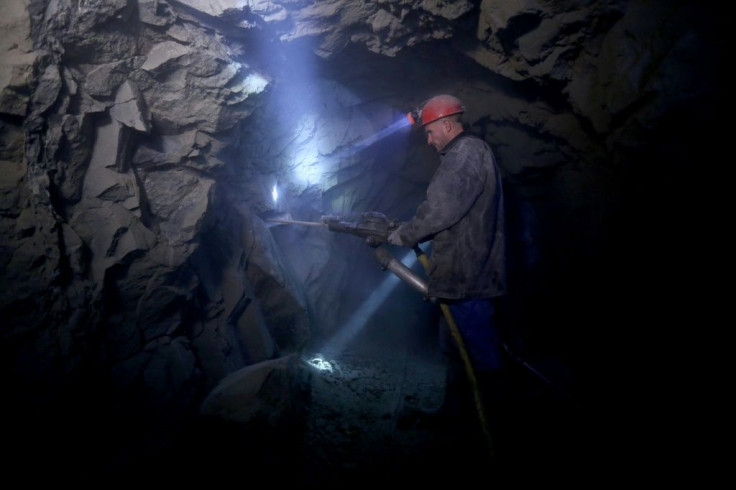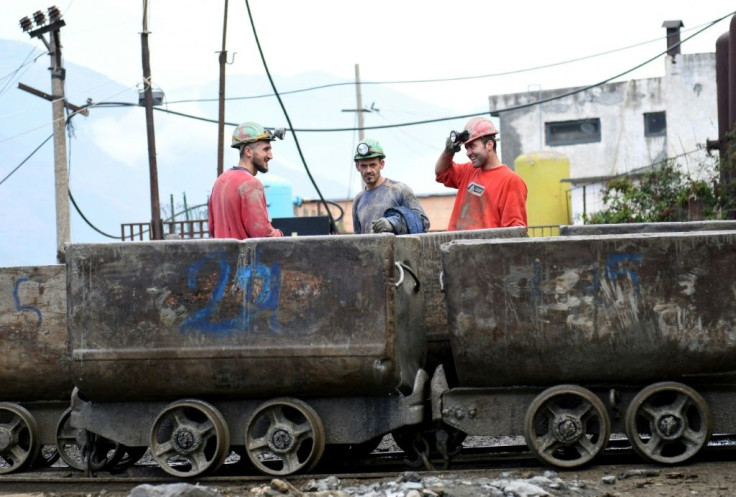Chain Reaction: Virus Darkens Future Of Albania's Chromium Miners
With mountains of chromite piling sky high on the docks of the port behind him in the Albanian city of Durres, logistics manager Henri Kurti explains the hold up.
"When China and America have problems, we have even bigger problems in Bulqize," he says, referring to the region to the east where the blue-grey metal is mined before being shipped around the world.
As the coronavirus pandemic rocks international commerce, knock-on effects are being felt in poor corners of the world like Albania, where chromium miners have nowhere to sell their goods due to a drop off in purchases from China.
The Balkan country's chromium sector is entirely dependent on exports, leaving the men and women who extract it at the mercy of world prices.

"These last few months have been very difficult with the pandemic, the fear of losing our work," says Florent Veseli, a 33-year-old drilling inside a cold, damp mine under a mountain in the Bulqize region.
"If the mine closes, we will have nothing left, we will no longer be able to feed our families."
Chromium, a hard metal used chiefly to make stainless steel, has been a struggling commodity for more than two years owing to a shrinking appetite from leading consumer China.
A trade war between Washington and Beijing had also injected volatility into the market.
But Covid-19 "dealt the final blow" because "many industries at the end of the value chain have slowed down," Sheraz Neffati, executive director of the International Chromium Development Association, told AFP.

In Bulqize, the mountain-ringed region that is home to Albania's chromite mines, the livelihoods of thousands of people are at stake.
Life was already hard in one of the country's most impoverished parts.
The work is back-breaking, hazardous and poorly paid, with wages ranging from 20 to 50 euros ($24-$60) a day.

Now nearly a third of the 2,660 miners are unemployed without any pay, and "risk losing their jobs permanently because of the crisis affecting the chrome industry," local official Zhuljeta Deda told AFP.
Only about 20 of 130 legally registered firms are continuing to mine because plunging prices -- $150 a tonne compared with more than $400 in good years -- no longer cover the costs of production.
Exports are down from 590,000 tonnes in 2016 to 200,000 this year, according to Albanian customs.
Another 200,000 tonnes now sitting in the port in Durres, waiting for orders.
The mayor of Bulqize, Lefter Alla, fears a total collapse of the industry and dire "consequences for the standard of living of inhabitants whose only possibility of income is from mining".

Health risks are also high, with miners lacking protective masks or goggles, while dozens of accidents have occurred in the last decade.
In October, a gas explosion claimed the lives of three miners, including a father who had recently lost his brother to a similar incident and a mother who died when a pile of chromite ore collapsed, burying her beneath.
"The work is dangerous, very dangerous," said Manushaqe Dani, a 48-year-old sorting pieces of the metal by hand.
Every time her husband and son go underground, she prays they will come home safely.
But even more than danger, the miners fear unemployment.
"If the mines are closed we have no place to go, we have no food for our children, we will be on the streets," said Andon Murrja, 53.
He has spent much of his life underground, describing the mines as a "second home".
"Bulqize lives off the mine, without the Bulqize mines, it's over," he said.
The situation is similarly dire for ferrochrome -- a processed form of the metal -- which Albania exports to the United States and Europe.
At the AlbChrome plant in the central town of Elbasan, shipments have gone into free fall and only one of two furnaces are in operation.
"The hardest thing is the uncertainty," said plant director Luan Saliaj.
"Nobody can say how we're going to get out of this crisis, it frightens companies but also employees".
For Albanian youth, the economic anxiety is just the latest push factor behind their desire to go abroad for work, as many have done.
"A young person wants nothing more than not to work in the chrome mines in Bulqize," economics student Griseida Derti told AFP.
"Nobody wants to stay and work here. Our dreams are elsewhere."
© Copyright AFP 2024. All rights reserved.





















